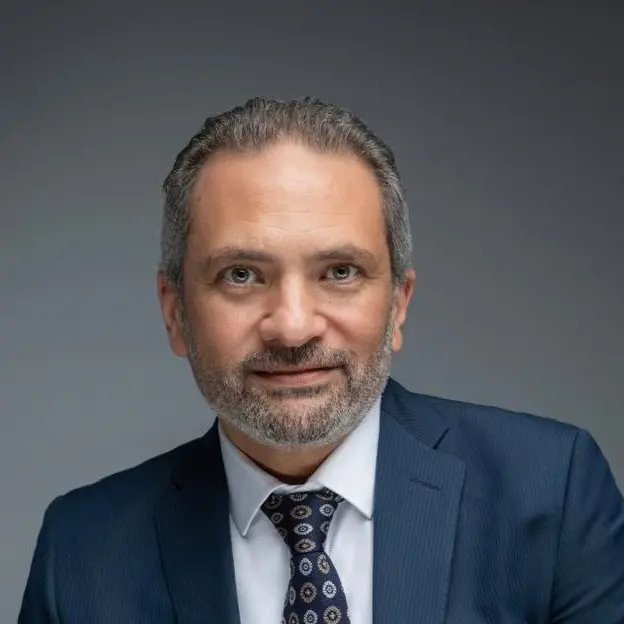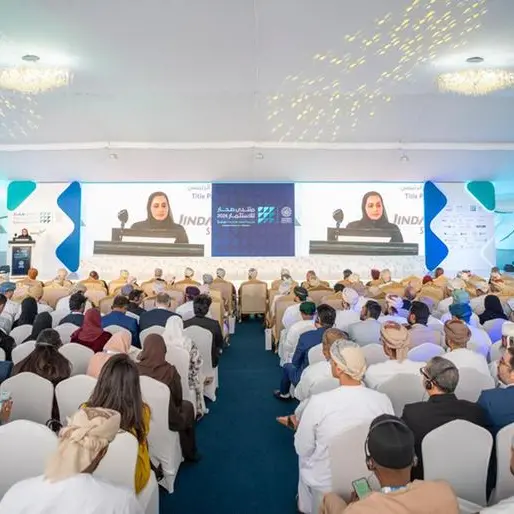PHOTO
- The Middle East is endemic for chronic hepatitis B virus (HBV) infection that is associated with high mortality and comorbidities risk, however development of healthcare facilities and improved socioeconomic status continues to contribute to a decrease in HBV [1]
- Ten-point policy framework to support patients during and after the COVID-19 pandemic was among key agenda points
- Experts also recommended establishing a national-level registry to support patients from governmental, semi-governmental and private sectors[2]
- Viral hepatitis is the seventh leading cause of death in the world, with HBV being the most widespread [3]
Dubai: Gilead Sciences has hosted the third edition of ‘B- Connected’, an annual event that brings together disease experts in the management of viral hepatitis, primarily hepatitis B (HBV) and C (HCV). This year’s event followed a hybrid format which saw in person attendance at live events in Dubai and Jeddah, with global attendees from the United Arab Emirates, Kingdom of Saudi Arabia, Kuwait, China, United States of America, Turkey, Germany, Korea, Spain and Italy convening over virtual platforms in line with the latest COVID-19 safety guidelines.
The event series seeks to close current gaps in epidemiological or health economic studies on chronic HBV in the region. The burden of viral hepatitis in the Middle East is considered high, based on clinical observation and deaths from chronic HBV complications[4].
Among the highlights of the event, Dr. Faisal Sanai, Consultant Gastroenterologist and Transplant Hepatologist at King Abdulaziz Medical City, Jeddah discussed a ten-point policy framework which would start with a thorough assessment of the burden of the disease and economic impact of HBV. This would then support the implementation of a comprehensive, measurable and applicable referral pathway for linkage of primary care physicians to specialists. Other points within the framework include the addition of specific checkpoints in the referral pathway to ensure successful patient transition and the use of key performance indicators to assess the referral pathway.
Further action points within the framework include the design and establishment of a tracking system in association with the Ministry of Health to monitor HBV patients (e-tracking), the implementation of age-targeted screening (for populations over 30 years of age), alongside the customization of screening campaigns as per specific regional needs across the Kingdom.
Within this framework, targets and incentives would also be set up for laboratories that are screening for HBV with the creation of free e-modules for HCPs and specifically for primary care physicians (PCPs) who may often serve as first point of contact for HBV patients. Medical education through CME (Continuous Medical Education) credits upon module completion is also being prioritized. The framework was rounded off by a call for increase of awareness for HBV patients through counseling sessions.
Over the two days, experts also joined keynote sessions, panel discussions and open Q&As that focused on advancing patient centric strategies, also addressing the various roadblocks that are currently preventing optimized patient outcomes.
Dr. Faisal Aba-Alkhail, President of the Saudi Association for the Study of Liver diseases and Transplantation, King Faisal Specialist Hospital and Research Centre, Riyadh said, “We need to sustain our trajectory towards supporting the healthcare system in KSA in eliminating hepatitis completely by 2030, in line with the goals of the World Health Organization. The proposed framework will not only support elimination, but also streamline medical education, patient awareness, screening and the establishment of a national level patient registry.”
The pre-engagement survey in KSA outlined that implementing screening campaigns are the highest priority (78 percent)[5]. Key touch points in the screening model discussed included premarital screening, pre-employment, blood donors, pregnant women, family members, intimate contacts of infected; in-patient procedures; initiation of immunosuppressant therapy or pre-cancer or pre-transplant; health care workers and medical students.
Dr. Sameer Alawadhi is a Consultant Physician and Head of Gastroenterology at Rashid Hospital in Dubai and President of the Emirates Gastroenterology Society, added, “It is important for us to collectively identify and share best-practice learnings and analyze together the challenges that patients infected with hepatitis are facing in the region. The COVID-19 pandemic has significantly altered the care model of patients suffering from hepatitis, especially screening campaigns. Elimination models will need to be redesigned to circumvent these challenges that are unique to every country.”
Other speakers included Dr. Abdullah A. Khathlan, Consultant Gastroenterologist and Transplant Hepatology at Second Central Health Cluster, KSA; Dr. Ahmad Al-Rifai, Consultant Hepatologist and Gastroenterologist at Sheikh Shakboot Medical City, Abu Dhabi; Dr. Adnan Alzanbagi, Consultant Hepatologist and Gastroenterologist at King Abdullah Medical City Specialist Hospital, Makkah, KSA; Dr. Ahmet Cagkan, Hacettepe University, Department of Infectious Diseases and Clinical Microbiology; Turkey; Prof. Maria Butti, Vice President of the Spanish Association for the Study of Liver Diseases; Prof. Markus Cornberg, Professor, Infectious Diseases with a focus on Hepatology and Senior Consultant at the Department of Gastroenterology, Hepatology and Endocrinology at Hanover Medical school, Germany; Dr. Motaz Fathy Saad, Consultant in Gastroenterology, Hepatology, Endoscopy and Nutrition, Egypt; Professor Pietro Lampertico, Assistant Professor in the 1st Gastroenterology unit at the Fondazione Irccs Ca’Granda, Bospedale Maggiore Policlinico, University of Milan, Italy; Dr. Nawal Al Nahdi, Program Director of Gastroenterology fellowship at Dubai Health Authority, UAE; Dr. Qing-Lei Zeng, Associate Professor, Department of Infectious Diseases and Hepatology, Zhengzhou University, China; Prof. Young Suk Lim, Professor, Department of Gastroenterology, Liver Center at Asan Medical Center, affiliated by the University of Ulsan College of Medicine in Seoul, Republic of Korea and Prof. Sung Won Lee is a Hepatologist, and currently a Clinical Associate Professor of Internal Medicine at the Catholic University of Korea.
Frederico Silva, General Manager, Gilead Sciences, Middle East said, “We are committed to ensure that our breakthroughs are advancing global health and creating possibilities. Within HCV, we have delivered four curative treatments in less than four years. Similarly, innovation has enabled HBV to become more of chronic disease with life expectancy of patients significantly increased. To ensure the best patient outcomes, Gilead frequently collaborates with industry partners, including healthcare providers to support patients with access to treatment- working with governments, patient organizations, payers and healthcare providers to increase awareness, drive screening and facilitate linkage to care. This event series has been supporting us with establishing and growing a patient-focused ecosystem.”
Viral hepatitis kills around 1·5 million people worldwide every year[6]. The World Health Organization has set the goal of eradicating hepatitis B and C by 2030[7].
About Gilead Sciences
Gilead Sciences, Inc. is a research-based biopharmaceutical company that discovers, develops and commercializes innovative medicines in areas of unmet medical need. The company strives to transform and simplify care for people with life-threatening illnesses around the world. Gilead has operations in more than 35 countries worldwide, with headquarters in Foster City, California.
For more information about Gilead & its products, please contact:
askGileadME@gilead.com
[1] Cross-sectional analysis of chronic hepatitis B patients in Saudi Arabia. Saudi J Gastroenterol 2019; 25:194-200
[2] IQVIA. 2021.Revealing Hepatitis B Virus as a silent Killer: A Call-to-Action for Saudi.
[3] IQVIA. 2021.Revealing Hepatitis B Virus as a silent Killer: A Call-to-Action for Saudi.
[4] Cross-sectional analysis of chronic hepatitis B patients in Saudi Arabia. Saudi J Gastroenterol 2019; 25:194-200
[5] IQVIA. 2021.Revealing Hepatitis B Virus as a silent Killer: A Call-to-Action for Saudi.
[6] Viral hepatitis in the Middle East https://www.thelancet.com/pb/assets/raw/Lancet/global-health/middle-east/Oct14_MiddleEastEd.pdf?elsca1=220713
[7] Make the elimination of viral hepatitis our next greatest achievement https://www.who.int/hepatitis/news-events/ghss-hepatitis-video/en/
© Press Release 2021
Disclaimer: The contents of this press release was provided from an external third party provider. This website is not responsible for, and does not control, such external content. This content is provided on an “as is” and “as available” basis and has not been edited in any way. Neither this website nor our affiliates guarantee the accuracy of or endorse the views or opinions expressed in this press release.
The press release is provided for informational purposes only. The content does not provide tax, legal or investment advice or opinion regarding the suitability, value or profitability of any particular security, portfolio or investment strategy. Neither this website nor our affiliates shall be liable for any errors or inaccuracies in the content, or for any actions taken by you in reliance thereon. You expressly agree that your use of the information within this article is at your sole risk.
To the fullest extent permitted by applicable law, this website, its parent company, its subsidiaries, its affiliates and the respective shareholders, directors, officers, employees, agents, advertisers, content providers and licensors will not be liable (jointly or severally) to you for any direct, indirect, consequential, special, incidental, punitive or exemplary damages, including without limitation, lost profits, lost savings and lost revenues, whether in negligence, tort, contract or any other theory of liability, even if the parties have been advised of the possibility or could have foreseen any such damages.




















